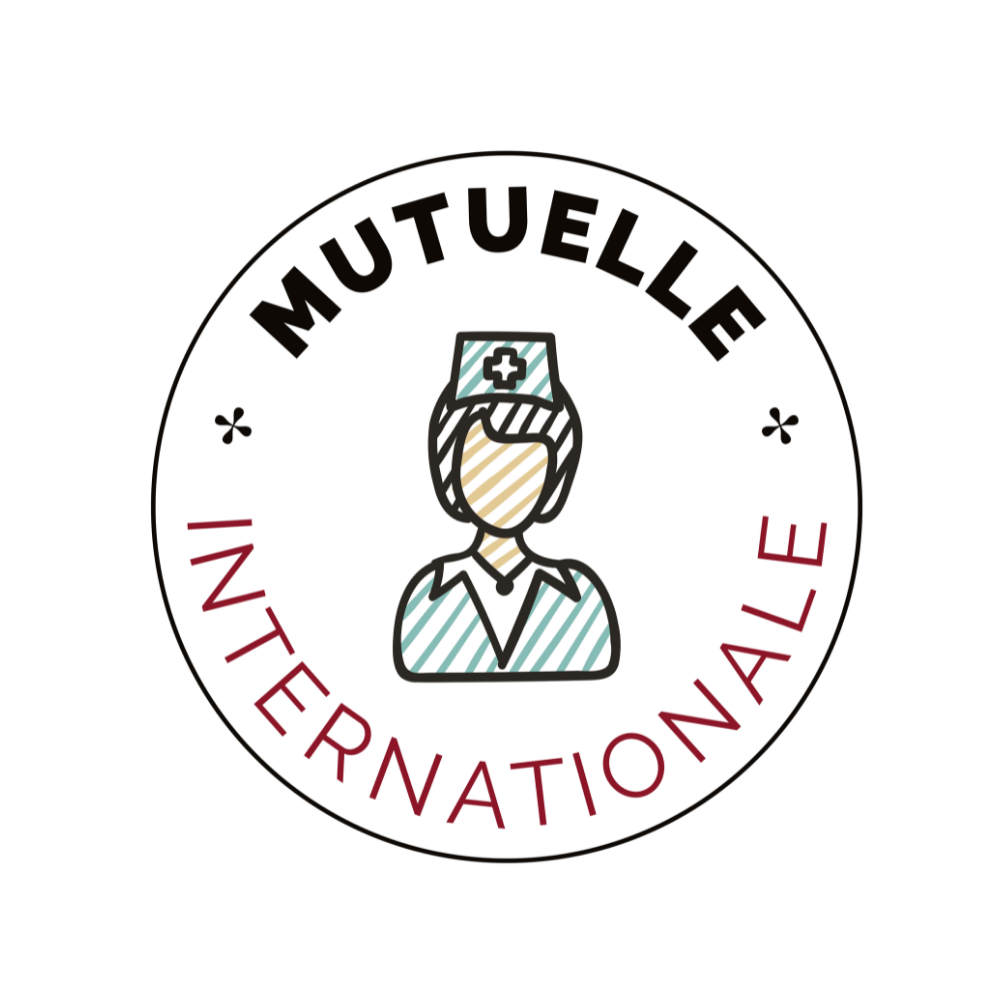|
IN BRIEF
|
Globalization has profoundly transformed the healthcare landscape, making international medicine essential in the evolution of local health systems. By combining knowledge and practices from diverse backgrounds, it contributes to addressing the health challenges emerging in each region. It is at the heart of this dynamic that opportunities for improving and strengthening health infrastructures, which are sometimes fragile, are emerging. Indeed, the exchange of expertise and the implementation of appropriate policies can only enrich responses to the health needs of populations. This interconnection, although essential, also presents difficulties and raises questions about the equity and effectiveness of care offered on the ground.
International medicine plays a growing role in local health systems around the world. While some initiatives are designed to strengthen healthcare networks, others can also generate harmful effects. This article focuses on the benefits and the disadvantages of this foreign influence, while exploring how it shapes access and quality of health care on the ground.
Benefits
International medicine can provide resources and one expertise essential to local health systems. Indeed, vaccination campaigns, training programs for medical personnel, and donations of medical equipment are often the result of international initiatives. These actions can increase response capacity to epidemics and improve health coverage in traditionally neglected areas.
Strengthening local capacities
When international organizations collaborate with local entities, they often bring knowledge and best practices that contribute to modernize the health system. Find out what happens when healthcare professionals participate in international training: it can lead to knowledge sharing and to innovations which ultimately benefit the local community.
Support during health crises
In crisis situations, such as epidemics or conflicts, international medicine represents a crucial support. It can provide emergency aid, medical teams and financial resources to quickly restore health services. For example, organizations like the WHO and several NGOs have demonstrated their effectiveness during past health crises.

Mondial Assistance reaches 1.5 billion euros in turnover in 2007 and prepares for future growth
In 2007, Mondial Assistance reached a historic milestone by reaching €1.5 billion in revenue. This milestone marked a turning point in the company’s expansion, and the company was already planning its future growth paths. In a sector where innovation is…
Disadvantages
Despite these undeniable advantages, the intervention of the international medicine in local health systems also includes risks. One of the main disadvantages is the possible dependence that can be created, where developing countries rely too much on external aid instead of strengthening their internal capacities.
Erosion of local systems
When external resources flood in, this can sometimes result in a erosion local health systems. For example, doctors may be attracted by better salaries offered by international organizations, leaving gaps in care coverage in their own countries. This can further destabilize an already fragile system.
Contradictions in priorities
Another problem lies in the fact that international organizations can impose criteria that are not necessarily in line with local needs. THE intervention plans may focus on diseases or health problems that are not as important in the local context, which could lead to misguided investments.
In sum, the impact of international medicine on local health systems is complex and multifaceted. If it offers profits When it comes to resources and expertise, it is essential to keep in mind the difficulties that it can generate. For true synergy to be achieved, exchanges must aim to strengthen the autonomy of local systems, thus allowing each country to develop a robust and sustainable health system, adapted to its own needs.
International medicine plays a crucial role in the evolution of local health systems around the world. By providing varied expertise and specific skills, it contributes to strengthening the capacity of countries to respond to current health challenges. This article explores the different aspects of this impact, highlighting the benefits, challenges, and opportunities that arise.

Choosing the right mutual insurance for expatriates in Asia
Embarking on an expat life in Asia is an exhilarating adventure, filled with cultural discoveries and professional opportunities. However, a crucial question quickly arises: how can you ensure adequate health coverage that protects both your well-being and your budget? Whether…
Strengthening local capacities
One of the main advantages of international medicine is its potential to strengthen local capacities. International interventions often provide resources, technologies and training that are lacking in many countries. For example, medical education programs can improve the training of healthcare professionals, and modern medical equipment can make a real difference in the quality of care provided.

Boursorama Banque and Revolut: financial services duel in 2025
Boursorama Banque and Revolut are emerging as essential pillars of modern financial services. While Boursorama Banque perpetuates its heritage of reliability and French banking tradition, Revolut represents the breakthrough of a bold British neobank with innovative features. Their duel promises…
Improved access to care
International medicine also facilitates access to care. Through initiatives such as humanitarian missions, many patients in isolated or underserved areas can benefit from care they might not otherwise have been able to obtain. Furthermore, the integration of international experiences makes it possible to better respond to the specific needs of local populations, while ensuring that care remains accessible and affordable.

Discover LovExpat: the first dating app dedicated to French expats
Expat life is a unique adventure, marked by the challenges of adapting to a new culture, creating new social networks, and sometimes, finding a romantic connection. LovExpat, the app born from the vision of two French sisters, addresses this need.…
Development of adapted treatments
Another important aspect is that international medicine helps to develop appropriate treatments to the unique challenges faced by each community. Agricultural, environmental and health expertise can help design health care that takes into account local particularities. Thus, health solutions are more relevant and effective, leading to better outcomes for patients.

AgoraExpat – Your Reliable Ally for Expatriate Medical Coverage
Living in a foreign country is an enriching adventure, but it also comes with unique challenges, particularly when it comes to healthcare. Navigating a new healthcare system can be complex and worrying. Therefore, the need for reliable and comprehensive medical…
Obstacles and challenges
Despite the many advantages, the integration of international medicine into local health systems is not without challenges. Dependence on external resources can create inequalities in access to care. It is also essential to ensure the sustainability of the programs put in place to prevent communities from remaining dependent on external aid. Collaboration with local stakeholders is essential to overcome these obstacles and ensure sustainable and equitable results.
Collaboration and partnerships
International medicine emphasizes the importance of collaborations and partnerships. Governments, non-governmental organizations and private institutions must work together to maximize the impact of their interventions. These collaborations promote the exchange of knowledge and experiences, thereby strengthening the overall capacity of health systems while avoiding duplication and optimizing the use of resources.
Sustainability of initiatives
For the impact of international medicine to be truly lasting, it is essential to think in terms of sustainability. This means that local health systems must be able to maintain and develop the initiatives put in place independently. By investing in training, infrastructure and access to sustainable resources, countries can ensure that the innovations brought by international medicine endure over time.
In conclusion, international medicine, while providing immediate solutions, poses essential questions about the future of local health systems. It is crucial to navigate these challenges carefully to maximize long-term benefits. Collaboration between local and international actors will be decisive in ensuring an equitable, accessible and sustainable health system for all.
International medicine plays a crucial role in how local health systems are structured and operate. By integrating practices and knowledge from various countries, it makes it possible to enrich care offers, improve access to health and anticipate global health crises. This article looks at the specific effects that international medicine has on health systems, while offering tips and tricks for optimizing these interactions.

Understanding first euro health insurance in France
IN BRIEF Health insurance at 1st euro : international coverage for expatriates. Support for health costs from the first euro spent. Independent of the Fund for French people abroad (CFE). Reimbursement to 100% without excess (depending on the formula chosen).…
Strengthening local capacities
It is essential to promote a capacity building within local health systems. International medicine can provide training and resources that enable local healthcare professionals to learn new skills. By supporting continuing education programs, countries can improve the quality of care provided and encourage innovation within their health systems. You can find out about the different programs available on specialized sites.
Better coordination of resources
There resource coordination is another fundamental aspect. The exchange of information and best practices between countries can lead to more appropriate use of medical resources. This means that it is imperative to establish international networks that promote this communication. To do this, participating in international forums and collaborative initiatives is an excellent way to build links between healthcare professionals.
Expanded Access to Health Care
Thanks to international medicine,access to health care has expanded considerably in some regions. Global health initiatives can help reduce inequalities in access by integrating quality services into hard-to-reach areas. By looking into international health insurance programs, you can find out how to secure optimal coverage that meets your needs, whether locally or abroad. You can consult resources like this platform for practical advice.
Preparedness for health crises
Emerging health crises are a major challenge for many countries. International medicine provides a framework foranticipation and preparation facing these crises. By learning from the experiences of other countries, local health systems can develop more robust emergency plans. Participating in simulations and crisis management exercises can also strengthen your ability to respond correctly in times of tension.
Innovation and collaborative research
There collaborative research between countries can lead to significant advances in health. Working together to develop new treatments or vaccines has shown its effectiveness during recent pandemics. To get involved, healthcare professionals can seek research opportunities and join international consortia. This not only increases knowledge, but also improves health solutions tailored to local needs.
In conclusion, the impact of international medicine on local health systems is complex and multidimensional. With emphasis on the capacity building, there resource coordination, L’access to care, there crisis preparedness, and the collaborative research, it becomes possible to optimize these systems for the benefit of all. So take a proactive approach to participate in this global health dynamic!
Impact of international medicine on local health systems
| Axis of impact | Consequences |
| Accessibility | Improving access to care thanks to international initiatives makes it possible to fill certain local gaps. |
| Quality standards | International standards encourage the raising of standards of care, having a positive impact on the training of professionals. |
| Specialization | International medicine encourages the development of unique specialties to meet specific needs. |
| Collaboration | Partnerships between local and international institutions strengthen local capacities and know-how. |
| Demography | The migration of health professionals modifies the distribution of human resources and exacerbates certain shortages. |
| Funding | Foreign investments improve health infrastructure, but can also create budgetary dependencies. |
| Prevention and awareness | International health campaigns contribute to education and prevention, thereby impacting local public health. |
| Inequalities | Disparities in access to care persist, often exacerbated by the influence of international medicine. |
There international medicine plays a fundamental role in the evolution of health systems at the local level. Numerous initiatives put in place by non-governmental organizations and international agencies have made it possible to strengthen healthcare capacities in often neglected regions. For example, through training programs and exchanges of expertise, local practitioners have benefited from valuable know-how which has contributed to improving practices and standards of care.
International medical visits, often organized in rural communities, provide not only essential care but also knowledge sharing. Many local health professionals attest to the feeling of hope and enthusiasm that emerges when foreign medical teams mobilize to support local teams. These exchanges also make it possible to introduce innovative practices which may prove crucial for the improvement of health services.
Another important point is the collaboration between international health institutions and local hospitals. This synergy can lead to the creation of new infrastructures and the improvement of access to care. Projects to build health centers in rural areas have been initiated following partnerships with international NGOs, proving that collective commitment is essential to overcoming systemic challenges.
However, there is no shortage of challenges. Persistent inequalities in access to health are often exacerbated by inappropriate local policies and a lack of resources. But it is undeniable that international medicine can inspire reforms and encourage countries to prioritize the health of their citizens. Ultimately, this movement towards a more equitable and accessible health system is nourished by the experiences and testimonies of those who dream of a overall health for all.
Thus, it is imperative to maintain this collaborative momentum in order to build strong and resilient local health systems, capable of facing future health crises. The history of international medicine is that of a collective commitment, and each of us can play an advocacy role to advance these necessary changes in our own communities.
International medicine plays a crucial role in the evolution of local health systems around the world. By providing expertise, medical innovations and treatment strategies, it influences not only the quality of care, but also the health policies of countries. This article sets out the different dimensions of this impact, highlighting the challenges and opportunities that arise from them.
Strengthening local capacities
International medicine contributes to capacity building local health systems. Through training and mentorship programs, healthcare professionals benefit from updating their skills and accessing new techniques. For example, non-governmental organizations (NGOs) and universities collaborate with local hospitals to provide continuing education. This transfer of skills promotes the autonomy of health systems and allows a better response to the needs of the population.
Collaboration and knowledge exchange
THE international partnerships facilitate the exchange of knowledge between developed and developing countries. These collaborations generate exchange programs, humanitarian missions and joint projects that enrich local medical practices. Access to recent research on specific diseases or innovative treatment methods allows health systems to adapt to developments in modern medicine.
Improving the quality of care
Another significant impact of international medicine is theimproving the quality of care. The implementation of international protocols within health systems stimulates a culture of quality. For example, programs such as the WHO Patient Safety Initiative encourage healthcare organizations to adopt concrete measures to promote patient safety and reduce medical errors. This is particularly relevant in countries with weak health infrastructure.
Shortage of health professionals
On the other hand, international medicine can also exacerbate the shortage of health professionals in low-resource countries. The attractiveness of positions in international organizations or humanitarian missions can lead to a brain drain, depriving local health systems of the talent needed for their development. This highlights the importance of a balanced approach that preserves qualified medical personnel in countries of origin.
Impact on local health policies
International medicine also influences local health policies. Countries are increasingly encouraged to adopt health policies based on scientific evidence, thanks to recommendations from international medical organizations. This can lead to significant reforms in health systems, such as expanding health care coverage or prioritizing certain pathologies. However, it is essential that these reforms take into account the local context to ensure their success.
Adaptation challenges
Finally, adapting international practices to the local context can be difficult. Cultural differences, existing infrastructure and available resources are all factors that can limit the effectiveness of international interventions. This is why it is crucial to involve local stakeholders in the design and implementation of programs, in order to ensure their relevance and sustainability.
In short, international medicine represents an opportunity to strengthen and modernize local health systems. Although the potential for improvement is immense, it is nevertheless necessary to act with caution to avoid pitfalls, notably the flight of talent and difficulties in adaptation. By combining international expertise and local roots, we can hope to build more robust and resilient health systems.
There international medicine has grown significantly in recent decades, significantly influencing local health systems across the world. By sharing knowledge, technologies and care practices, it paves the way for better access to health care for millions of people, particularly in the most disadvantaged areas. This dynamic is particularly visible in developing countries, where strengthening local capacities and training health professionals have become priorities.
The initiatives of international cooperation and humanitarian assistance have also made it possible to respond quickly to health crises, such as epidemics or natural disasters. These transnational programs promote not only the sharing of expertise but also the establishment of solidarity networks between countries. As a result, the resilience of health systems is strengthened, enabling them to better cope with unforeseen challenges.
However, this positive impact is not without challenges. Overreliance on external assistance can sometimes harm local systems, necessitating reforms to ensure sustainable self-reliance. Health policies must therefore be adapted to integrate the cultural and economic specificities of each region. It is crucial to ensure best local aptitude to manage health problems, while maintaining constructive collaboration with the international community
In summary, international medicine offers invaluable opportunities to improve global health, but its success depends on a commitment to building systems that are resilient, equitable, and responsive to local needs. A balanced approach, combining external aid and local capacity building, is essential to guarantee a healthy future for all.


